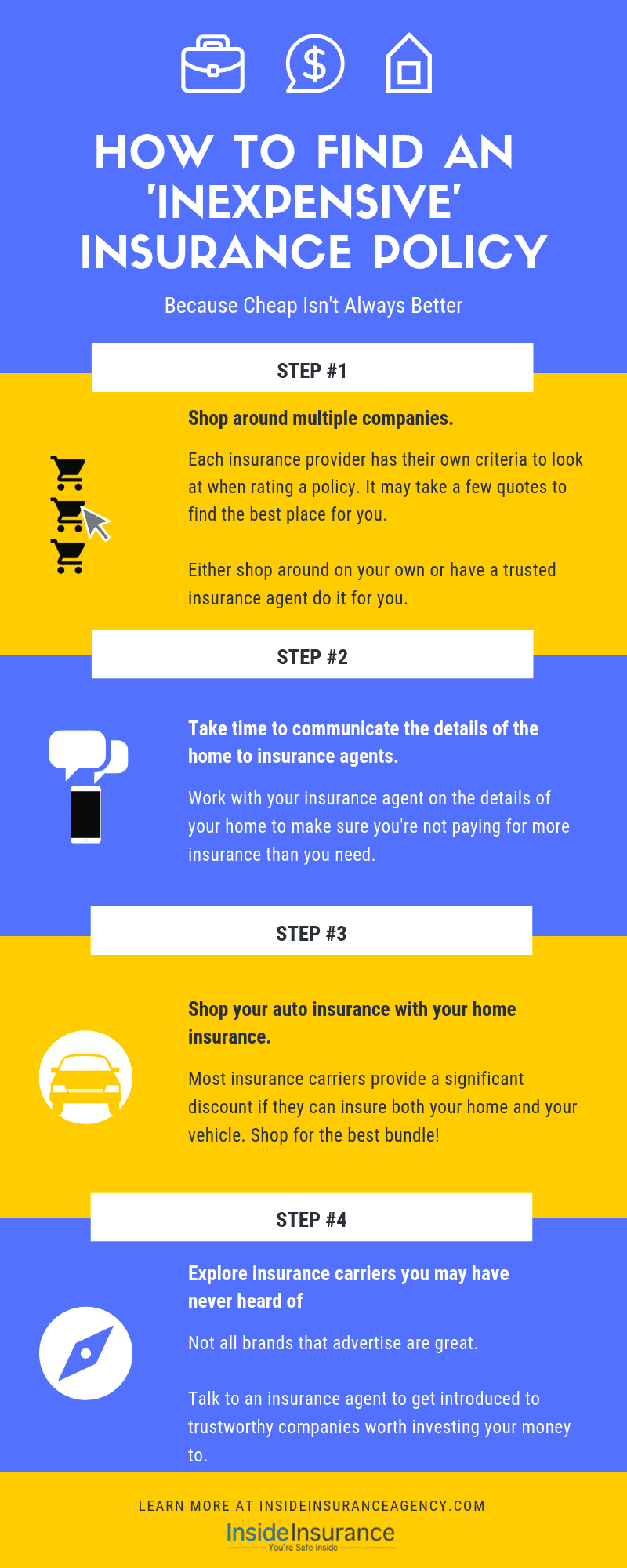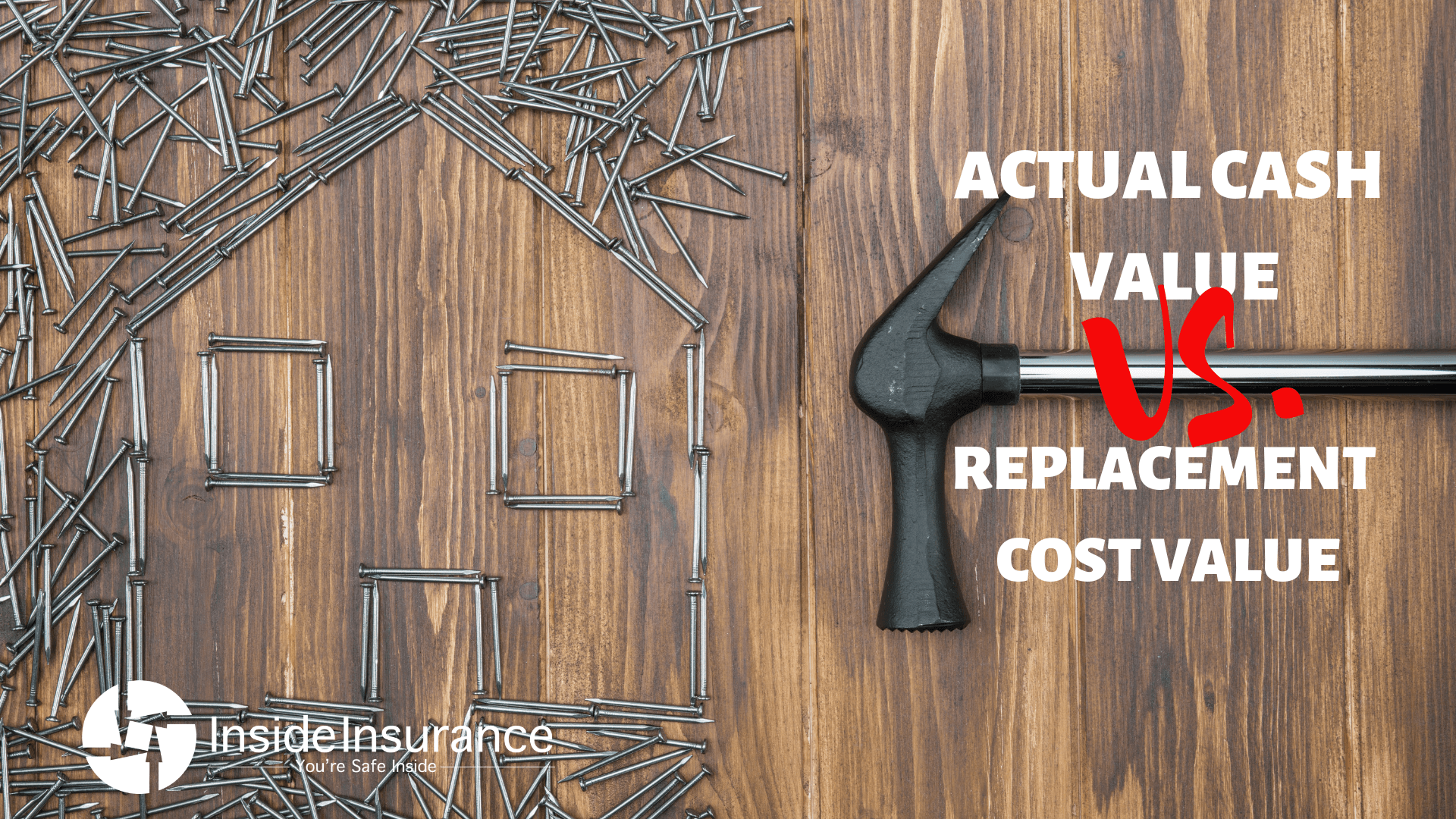(Or anyone who owns a home, and planning to buy a new one)

Why We Need Homeowners Insurance?
Insuring your home is not required by law. But there are a few compelling reasons why you should have a home insurance policy.
It’s absolutely true that there is no mandate on every homeowner to carry insurance. However, when getting a mortgage, your lender will insist that the property they finance be insured.
This means, no home insurance = no home loan.
It’s one obvious reason for getting your house insured but perhaps isn’t the most important.
The reason why it’s in your best interest to have homeowners insurance is that it protects you and your family financially in case a disaster or calamity or an unforeseen event destroys your home. You can file a claim and the property can be restored to its pre-loss condition.
Does this mean homeowners insurance guarantees a full rebuild of my destroyed property? Yes, but not quite. We’ll get into that in a minute.
Your home insurance may cover more than just the house itself (permanent structure). In fact, some policies may also be used to cover your personal belongings or an injury caused to a person who gets hurt while on your property.
Pretty cool, right? So how do you get started?
This simple and comprehensive guide serves as a great start for any first-time home buyer and is best for homeowners residing in the state of Utah.
Homeowners Insurance in Utah: Cheap vs. Inexpensive
The State of Utah was recently acknowledged by Forbes in having two of the best places (cities) to invest in in 2018.

The real estate climate is steadily progressive, with median home value at around $233,000 according to Zillow. That’s lower than its neighboring states. In addition to this, Utah with its booming tech industry has attracted new job seekers to move in.
Who wouldn’t? 2018 data shows that Utah’s median household income is $8,360 higher than the median US household income.
It’s no surprise that Utah real estate is on the rise, and is constantly eyed by first-time homebuyers (or homebuyers in general).
When talking about real estate, you can’t set homeowners insurance aside.
Apart from the reasons stated above, your house is probably one of the (if not the) most expensive investment you’re making or have made.
We all know that the logical step to take after an expensive purchase is to have your asset insured.
Some of you probably remember my partner Todd sharing a story about his son who’s got a new toy. Let me share it once more:
Todd gifted his boy with an action figure. The boy loved it so much he wouldn’t share with other kids. He’s afraid other kids might break it or something.
Todd, being the great dad that he is, gave his little boy an offer he couldn’t refuse.
He told his son that if other kids break the toy or disfigure it by any means, he will surely get his boy a brand new one.
Guess what happened next? The boy happily shared the toy with his friends, knowing that his great dad will replace it if the unexpected happens.
The kid probably felt a huge relief after hearing Todd’s offer!
This is kind of the same thing with insurance.
We can all relate in having that one valuable property we hold so dear, that we badly want to make sure it stays with us as long as possible.
So much so that we tell ourselves “If there’s a way to make sure I’ll be able to keep it all my life, or for the next generations to come, that no force on earth shall take it away or destroy it for good, I’ll take it.”
That’s basically insurance. Well, for the most part.
If you can get it for free, like the way Todd insured his little kid’s new toy, that’d be great. But like any other great things to have, they too come at a price.
With this in mind, we can’t help but notice that first time Utah home buyers tend to find ways to save some of their closing dollars costs and monthly payments.
Why not save a little bit more on the insurance side after getting a bit of a steal on home prices, right? Double-win.
This thinking is totally understandable, and we think there’s nothing wrong with that either. In fact, in our South Jordan branch, we’ve helped first-time homebuyers cut down their costs by saving them money on their homeowner’s insurance.
It ONLY becomes a problem when home buyers begin to look for CHEAP options instead of INEXPENSIVE. They’re kind of the same right? Not really.
Let me explain.
You’ve probably heard the saying, “Cheap isn’t always better.”
Finding an insurance policy that fits your budget is easy. But most of the time, the only way an insurance quote can go down in price is by decreasing your coverage and increasing your deductible.
Neither is a good option.
So how do you find an insurance policy that is inexpensive but not cheap? Here’s a quick check-list:
- Be willing to shop around multiple companies.
There are dozens of home insurance providers in each state and they each have their own criteria they look at when rating a policy. This means it may take a few quotes before you find the best place for you.
You can do this on your own or use an independent insurance agent who will do the shopping around for you.
2. Take the time to provide details of the home to insurance agents.
Your home will not likely be insured for the amount you are paying for it. If you can work thoroughly with insurance agents in providing quotes for you, they will make sure you are not paying for more insurance than you need.
3. Shop your auto insurance around with your home insurance.
Bundling your home and auto insurance is one of the best ways to save money. Most insurance carriers provide a significant discount if they can insure both.
4. Know that there are great insurance carriers out there that you may never have heard of before that provide outstanding coverage.
Talk to a trusted insurance agent so he/she can introduce you to other trustworthy companies worth investing your money to.

We never advise our clients to go for the cheapest option right away. But we make sure they end up getting the best inexpensive policy that suits their need while staying close to their budget.
Buying a new home can be a huge milestone for many. So it’s important to also be familiar with the different insurances around buying your first home.
Some of our clients think all there is homeowner insurance.
Let’s take a look at the different insurances that a first-time home buyer needs to understand other than homeowner insurance.
Different Insurances for the First Time Home Buyer
As you are purchasing your home you’re likely familiar with these terms: Title Insurance, Homeowners Insurance, Mortgage Insurance…
You have your realtor and loan officer to thank for that!
They may sound intimidating and you’re likely to just leave them to a professional. But they’re actually quite simple and you’re here to demystify these words and discover the differences.
Hazard Insurance
A common term used by a lot of mortgage lenders. It’s an insurance policy on the house itself and is called such because it provided coverage against different “hazards”, such as fire and wind.
A traditional Hazard Insurance Policy is seldom sold these days, although the term Hazard Insurance and Homeowners Insurance often get used interchangeably. A hazard policy is basically a stripped-down version of a homeowner’s policy. In order to get your mortgage loan, you need a certain amount of hazard insurance coverage included in your homeowner insurance.
Your loan provider will require you to have this in order to make sure their asset is covered against certain types of damages.
The “asset” being referred to is the brick-and-mortar house itself. Imagine you can lift and turn your house upside-down. Shake everything off of it, and whatever remains is what’s being covered in hazard insurance. Your “stuff” (personal belongings) that were shaken off of may be covered by your homeowner insurance.
Homeowners Insurance
This is the type of policy you will most likely purchase to protect yourself against some life’s unknowns.
Aside from providing coverage for your house, it also protects your possessions, detached structures such as sheds, personal liability, and a few other items.
Homeowners Insurance also covers injuries incurred by other people while on your property.
Title Insurance
This is the insurance that protects the lender (and optionally you) in case someone else is trying to claim ownership of your land or if there are problems with the title. In a purchase transaction, there are 2 title policies purchased. One for the lender, and one for the buyer.
Private Mortgage Insurance
This usually comes into play when you are purchasing a home with less than a 20% down payment. It’s an insurance policy that keeps the mortgage company from losing money if you foreclose on your home. This is also best known as PMI.
Mortgage Protection Insurance
Also known as MPI. This is basically life insurance that would pay off your mortgage in case of death or disability.
Condo Insurance
If you are buying a condo or townhome that is part of an HOA you may or may be required to purchase an HO-6 or Condo Insurance policy. This is a modified version of a homeowners policy that accounts for the fact that the HOA is responsible for insuring the building structure.
Some lenders refer to this as a “Walls-In Policy.” Different states have different laws, and coverages provided in a condo insurance policy.
If you need this insurance it is essential to get a copy of your HOA’s master insurance policy and have an insurance expert help you determine what insurance you need.
Flood Insurance
Hazard or homeowners insurance policies do not provide coverage against a flood. If the home you are buying is in certain flood zones that the lender finds risky they will require that you purchase flood insurance.
The same people helping you with your homeowner’s insurance can help you with flood insurance.
They’re easier to understand than they sound, right?
This should give you a good headstart in knowing what to tell your insurance agent. Agents are there to help you through the paperwork where these concepts are mixed up with a bunch of legalese.
Getting someone to help look into the paperwork can make you feel at ease, knowing that you have someone you can trust in aligning your preferences, needs, and budget according to what insurance companies ACTUALLY offer.
What Your Utah Homeowners Policy Covers You Against
Sometimes an insurance company offers you certain discounts in an effort to cut down your premium. This can often come at the expense of the total amount of coverage that your policy will provide for you.
Be careful, because this may actually cost you more money than having to spend just a little bit more each month on your homeowner insurance premium.
I always tell people, “If you’re standing on the sidewalk watching your house burn down, you won’t care about the $50 or $100 you saved on your policy, but you will care if you have the proper coverage in place.”
First, make sure you know what coverages you have.
- Earth Movement (Earthquake, landslide, mudslide, sinkhole)
- Water Damage (Flood, backup of sewer or drains)
- Power Failure
Are you being covered against everything you want to?
Your policy will come with a list of things that are not covered. Here is a look at what that list will likely contain:
- Law and Ordinance
- Neglect
- War
- Nuclear Hazard
- Intentional Loss
- Governmental Action
This is pretty standard and you will want to talk to your agent to see what is covered and not covered by your specific policy.
Some carriers have an option to add earthquake coverage to your policy and there are some that will provide a policy specifically for earthquake and/or landslide coverage.
When talking about flood or water damage, we’re not referring to leaking pipes or water lines to appliances, that is generally covered (as long as it’s not neglect).
What is not covered is water from flooding, backing up of sewer or drains, groundwater, or water from an outside source.
To be covered against flood you would need a separate flood policy. Coverage against the backup of sewer and drains can be added to your regular home policy as an endorsement.
Also, when it comes to personal property, your home policy will have some special limits on certain items.
Each policy will be different in regards to what is on this list and what special limit is placed on these items, so you will want to discuss this in detail with your agent. Here are some things that could be on the list:
- Money, banknotes, bullion, gold, silver, securities, deeds, letters of credit, etc…
- Watercraft
- Trailers
- Jewelry, watches, furs, precious stones.
- Firearms
- Silverware and Goldware
- Personal business property
- Electronics
- Musical Instruments
- Fine Art
There are ways of getting additional coverage for some of the items on this list, so if you have any concerns talk to your home insurance expert.
Now that you have a good understanding of what types of insurances you might need for your first home purchase, and what you’re likely covered against, we go back to what is probably the main contention of every insurance shopper: COST.
How Much Coverage Do I Need?

This is a very common question.
Again, we have to keep reminding everyone “Cheaper isn’t always better.”
That is why we help insurance buyers understand that while CHEAP is not our primary option, there are INEXPENSIVE options out there to discover.
But how do you draw the line between EXPENSIVE and INEXPENSIVE?
It’s important to know the difference between ACTUAL CASH VALUE and REPLACEMENT COST VALUE – this is what draws the line.
Actual Cash Value
Sometimes, a claim is to be paid out pursuant to the actual cash value. This type of claim covers the cost to replace the damaged property minus its depreciation value.
This means you’re entitled to the replacement cost of the damaged property but not the diminution in value.
Replacement Cost Value
Replacement cost is the amount of money it would take to rebuild your home completely as it is now. A policy that provides replacement cost value may provide you with better coverage. Why? Under replacement cost value, depreciation is excluded and you’re likely entitled to a higher payout.
Most homeowners insurance companies will require a replacement cost estimator to be completed before your policy is every activated. Make sure this is done correctly.
As long as the information entered into this calculator is correct then your agent will know how much coverage you need. The information entered is the physical attributes of your home, such as square footage, building materials, etc.
Remember: If you do not have the right coverage you could be paying extra for too much coverage, or be inadequately insured. So make sure you are covered at replacement cost.
Summary for Home Insurance:
Buying your first home can be stressful, with all the paperwork that comes with it. Sometimes, we’d like to think the process ends there. But reality tells us we’ve got more to understand as there are taxes and insurance coverages to further take care of.
Some think they’re just added expenses, and that’s understandable. We help people like you to see the importance of preparing your insurance dollars for the best possible gains in case of the unexpected.
We hope this guide helps you discover your things-to-consider when insurance shopping. We at Inside Insurance – South Jordan branch have helped hundreds of families like yours in getting the most out of their insurance dollars by carefully asking about their needs and aligning their budget accordingly to get the most inexpensive offers for them.
Let us show you how to shop across multiple carriers more effectively and give you options that are tailor-fit to your family’s needs.
Inside insurance was founded on the principle of Integrity (doing the right thing, even if no one is watching). We pride ourselves on putting our client’s needs first. Providing the most appropriate coverage is our first priority. As an Independent agency, we are able to provide our clients with the best insurance products available to suit their needs, and then match them with the best price available. We want to be your Agency for life and we strive to blow your socks off with our service to earn your trust in referring your family and friends.

